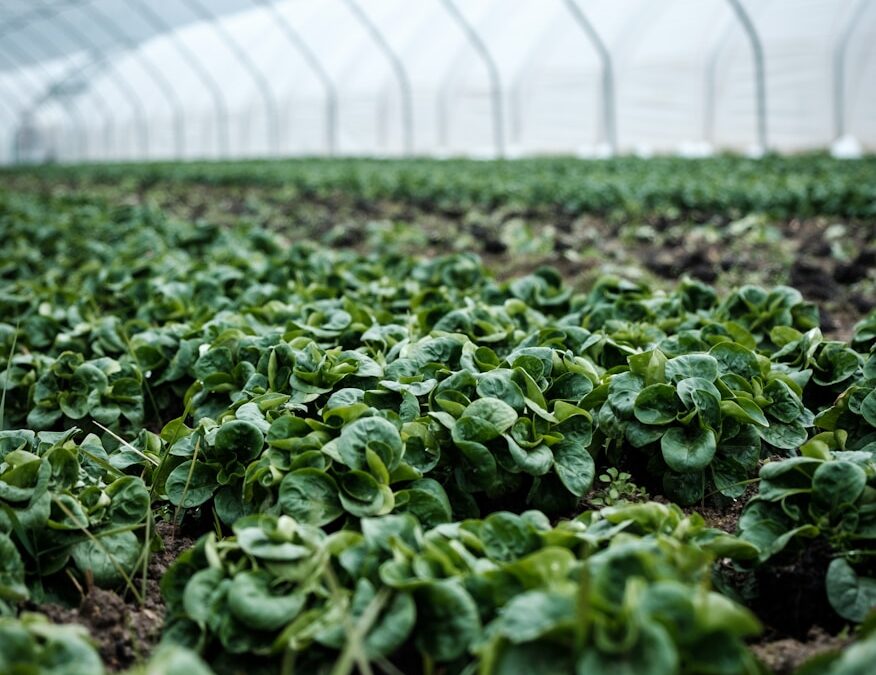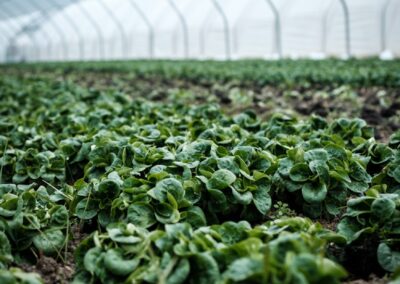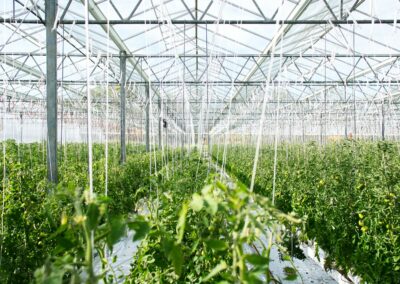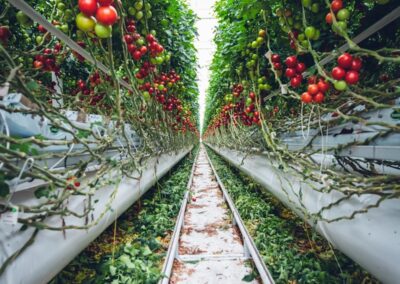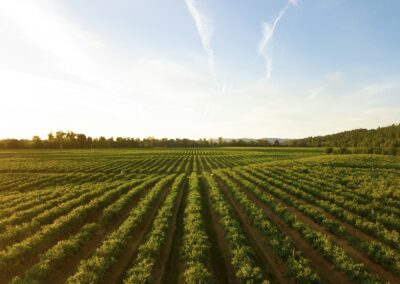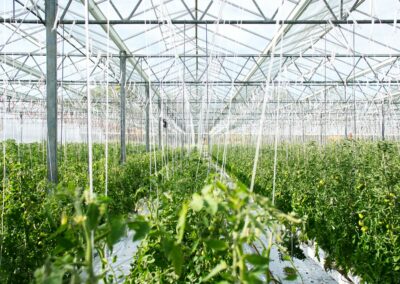Revolutionizing Sustainable Agriculture with Digital Tools
Combining Aquaponics with Advanced Technologies
The integration of aquaponics with digital agriculture tools, such as sensors, IoT devices, and data analytics, revolutionizes this practice by enabling real-time monitoring and optimization of system conditions. This approach enhances productivity and resource use efficiency, making it an ideal solution for cities like Riyadh, Dubai, and other metropolitan areas in Saudi Arabia and the UAE.
Digital tools provide precise control over the various parameters essential for the successful operation of aquaponics systems. These tools monitor water quality, temperature, pH levels, and nutrient concentrations, ensuring optimal conditions for both fish and plants. By continuously collecting and analyzing data, these systems can automatically adjust settings to maintain balance, reduce waste, and improve yields. This level of precision is particularly beneficial in regions with limited water resources and arable land, supporting sustainable agriculture.
For business executives and entrepreneurs, the adoption of aquaponics integrated with digital agriculture represents a significant opportunity. The ability to produce high-quality, sustainable food locally addresses the growing demand for fresh produce in urban centers. Moreover, leveraging advanced technologies can position businesses at the forefront of innovation, enhancing their competitiveness and profitability in the agricultural sector.
Boosting Productivity Through Real-Time Monitoring
Real-time monitoring is a cornerstone of modern aquaponics systems. By integrating digital tools, farmers can gain insights into the health and performance of their aquaponics systems at any given moment. Sensors and IoT devices continuously collect data on water parameters, plant growth, and fish health. This data is then analyzed to identify trends, detect anomalies, and provide actionable insights for system optimization.
In urban centers like Riyadh and Dubai, where space is limited and the climate can be challenging, real-time monitoring ensures that aquaponics systems operate at peak efficiency. For instance, if sensors detect a drop in nutrient levels or a rise in water temperature, the system can automatically make adjustments to prevent adverse effects on crops and fish. This proactive approach reduces the risk of crop failure and ensures consistent, high-quality production.
Mid-level managers and project leaders play a critical role in implementing and managing these advanced aquaponics systems. Their expertise in data analysis and system management is crucial for maximizing the benefits of real-time monitoring. By utilizing digital tools, managers can make informed decisions that enhance productivity, reduce operational costs, and improve overall system performance.
Optimizing Resource Use for Sustainability
One of the primary advantages of integrating digital agriculture tools with aquaponics is the optimization of resource use. Traditional farming methods often lead to significant resource wastage, including water and nutrients. In contrast, aquaponics systems are designed to be highly efficient, recycling water and nutrients within a closed-loop system. The addition of digital tools further enhances this efficiency by ensuring that resources are used precisely and only when needed.
For example, sensors can monitor water levels and nutrient concentrations, ensuring that plants receive the right amount of nutrients without excess. This precision reduces waste and lowers the environmental impact of farming. In water-scarce regions like Saudi Arabia and the UAE, efficient water use is critical. Aquaponics systems, supported by digital monitoring, can use up to 90% less water than traditional soil-based agriculture, making them an attractive option for sustainable food production.
Business leaders who invest in aquaponics and digital agriculture demonstrate a commitment to sustainability and corporate social responsibility. By adopting these technologies, companies can reduce their environmental footprint, meet sustainability goals, and appeal to eco-conscious consumers. This not only enhances the company’s reputation but also contributes to long-term business success.
Effective Change Management in Technology Adoption
The transition to aquaponics and digital agriculture requires effective change management strategies. Business leaders must be prepared to navigate the complexities of adopting new technologies and integrating them into existing operations. This involves investing in infrastructure, training staff, and fostering a culture of innovation and adaptability.
Executive coaching services can provide valuable support during this transition. Coaches can help leaders develop the skills and mindset needed to drive technological innovation and manage change effectively. This includes strategic planning, effective communication, and the ability to inspire and motivate teams. In dynamic urban environments like Riyadh and Dubai, strong leadership is essential for the successful adoption of advanced agricultural technologies.
Change management also involves addressing potential resistance to new technologies. By engaging with stakeholders, providing clear communication, and demonstrating the benefits of aquaponics and digital agriculture, leaders can build support and ensure a smooth transition. This proactive approach minimizes disruptions and enhances the overall success of the project.
#aquaponics #digitalagriculture #sustainablefoodproduction #resourceefficiency #realtimemonitoring #productivity #saudiarabia #UAE #Riyadh #Dubai #changemanagement #executivecoaching #effectivecommunication #businesssuccess #managementconsulting #artificialintelligence #blockchain #themetaverse #generativeAI #leadershipskills #managementskills #projectmanagement

